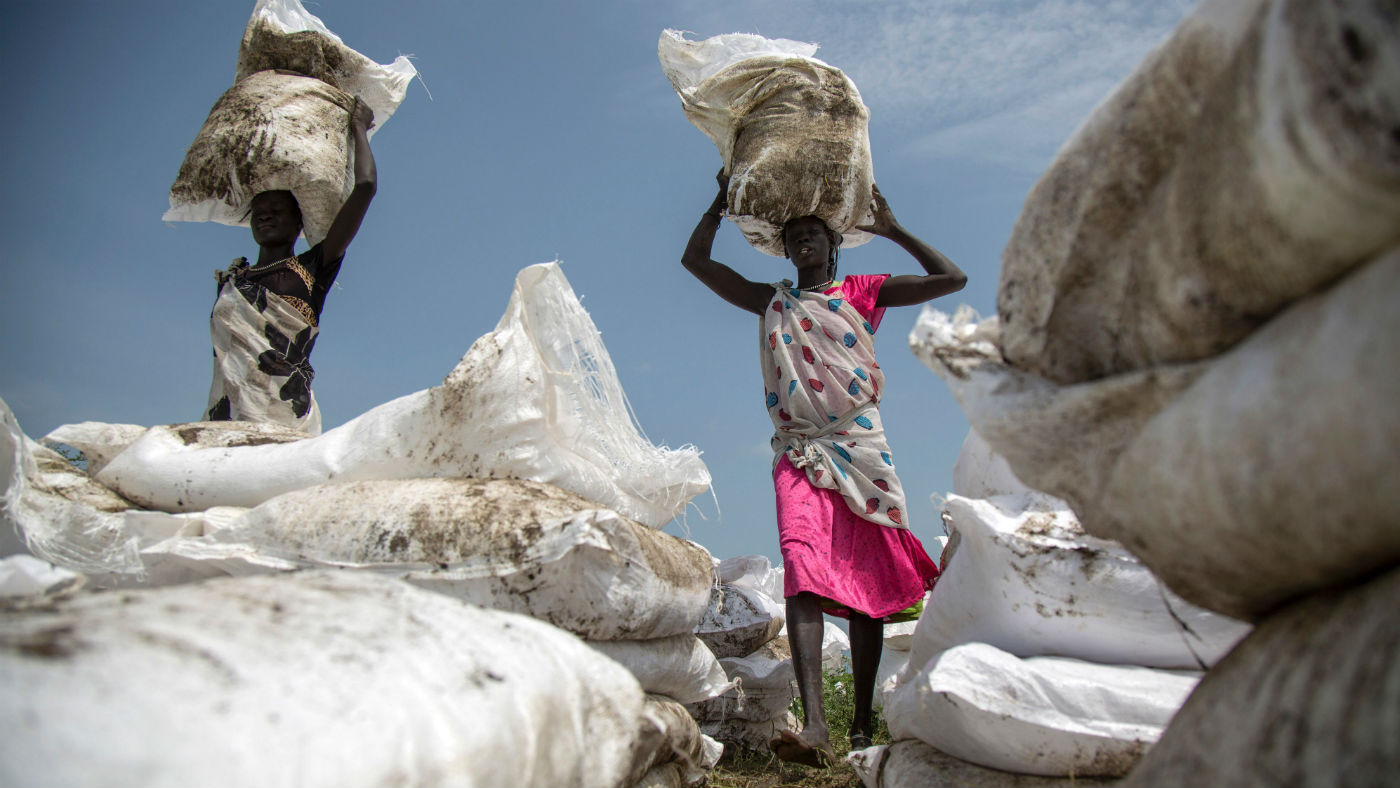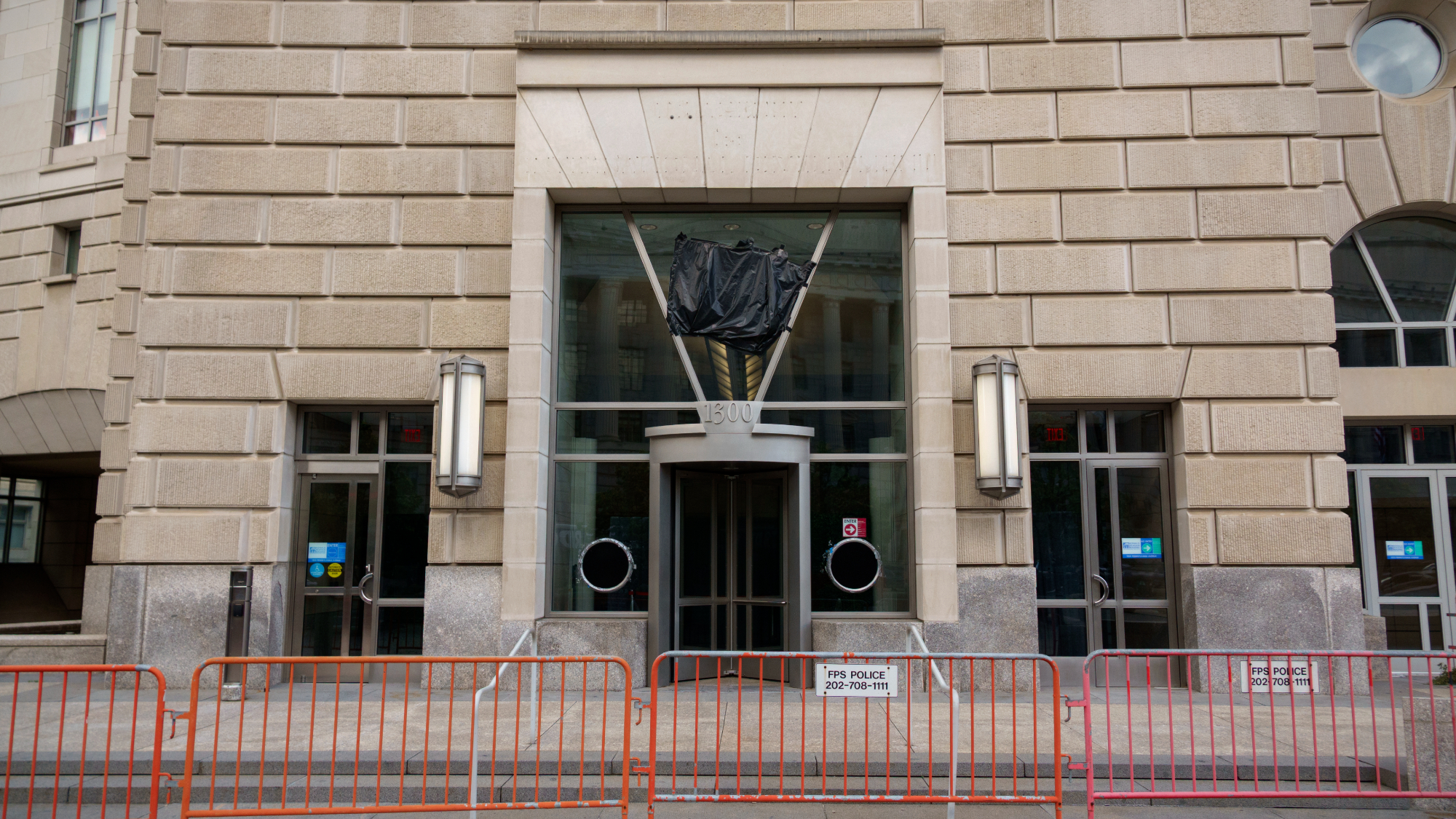What is in new blueprint for foreign aid endorsed by Boris Johnson?
‘Global Britain’ report says Dfid could be folded into Foreign Office

A free daily email with the biggest news stories of the day – and the best features from TheWeek.com
You are now subscribed
Your newsletter sign-up was successful
Plans for a multibillion pound cut in the UK’s foreign aid budget have been set out as part of a new vision for a post-Brexit “global Britain” backed by the former foreign secretary Boris Johnson.
The proposals feature in a report called Global Britain: A Blueprint for the 21st century, drawn up by Bob Seely, a Tory member of the Foreign Affairs Select Committee, and James Rogers, a strategist at the Henry Jackson Society think tank. The newly published paper is intended to inform a Foreign Office review being headed by Foreign Secretary Jeremy Hunt on the UK’s geopolitical role after quitting the European Union.
This “is probably the most serious effort by a Conservative MP to define the future challenges facing Britain’s overseas engagement”, says The Guardian.
The Week
Escape your echo chamber. Get the facts behind the news, plus analysis from multiple perspectives.

Sign up for The Week's Free Newsletters
From our morning news briefing to a weekly Good News Newsletter, get the best of The Week delivered directly to your inbox.
From our morning news briefing to a weekly Good News Newsletter, get the best of The Week delivered directly to your inbox.
Champions of the plan include former foreign secretary Boris Johnson, who has written a foreward to the paper in which he argues that the proposals are “hard to disagree with”.
According to Seely and Rogers, in 2017-18 Whitehall spent as much as £1.5bn on overseas aid that did not meet the Government’s official aid definitions and that was therefore not counted towards the 0.7% ODA target.
The authors argue the UK “should be freed to define its aid spending unconstrained by criteria set by external organisations”, and the purpose of such aid expanded from poverty reduction to include “the nation’s overall strategic goals”.
One of their key proposals is that the Foreign Office should once again become the main outward-facing government department, incorporating both the Department for International Development (Dfid) and the Trade Department. The Foreign Office would then become the “undisputed intellectual driver of global engagement”, the report says.
A free daily email with the biggest news stories of the day – and the best features from TheWeek.com
Under the plan, all UK peacekeeping efforts would be funded through overseas aid, with savings returned to the Ministry of Defence to increase Britain’s military power. In a bid to restore Britain’s ability to project soft and hard power, the BBC World Service would also be expanded, with a £1bn budget funded entirely from aid.
And Dfid would be blocked from spending simply to meet the 0.7% target, with cash instead held back if no suitable projects arise. The report argues: “The greatest alleviator of poverty in the world has been Western capitalism backed by Western foreign direct investment.”
The blueprint is thought to chime with the opinion of International Development Secretary Penny Mordaunt. The Sun reported last month that Mordaunt had told colleagues that the overseas aid target was “unsustainable” and that Dfid should “move from being a spending department to a fundraising department”.
However, in an article for The Times, former international development secretary Andrew Mitchell argues against the plans, saying: “Keeping Dfid as an independent department and ensuring that all UK aid is poverty focused, effective and transparent will help the UK to retain its hard-earned global reputation”.
Labour MP Dan Carden, shadow international development secretary, also condemned the proposals that the UK “turns its back on its commitment to eradicate global poverty, calls for the Department for International Development to be broken up, the aid budget to be slashed and for the UK to pull out of the OECD’s [Organisation for Economic Co-operation and Development] forum of major international donors that oversees global aid spending”.
-
 6 of the world’s most accessible destinations
6 of the world’s most accessible destinationsThe Week Recommends Experience all of Berlin, Singapore and Sydney
-
 How the FCC’s ‘equal time’ rule works
How the FCC’s ‘equal time’ rule worksIn the Spotlight The law is at the heart of the Colbert-CBS conflict
-
 What is the endgame in the DHS shutdown?
What is the endgame in the DHS shutdown?Today’s Big Question Democrats want to rein in ICE’s immigration crackdown
-
 How corrupt is the UK?
How corrupt is the UK?The Explainer Decline in standards ‘risks becoming a defining feature of our political culture’ as Britain falls to lowest ever score on global index
-
 ‘The censorious effect is the same, even if deployed covertly’
‘The censorious effect is the same, even if deployed covertly’Instant Opinion Opinion, comment and editorials of the day
-
 The high street: Britain’s next political battleground?
The high street: Britain’s next political battleground?In the Spotlight Mass closure of shops and influx of organised crime are fuelling voter anger, and offer an opening for Reform UK
-
 Is a Reform-Tory pact becoming more likely?
Is a Reform-Tory pact becoming more likely?Today’s Big Question Nigel Farage’s party is ahead in the polls but still falls well short of a Commons majority, while Conservatives are still losing MPs to Reform
-
 Taking the low road: why the SNP is still standing strong
Taking the low road: why the SNP is still standing strongTalking Point Party is on track for a fifth consecutive victory in May’s Holyrood election, despite controversies and plummeting support
-
 What difference will the 'historic' UK-Germany treaty make?
What difference will the 'historic' UK-Germany treaty make?Today's Big Question Europe's two biggest economies sign first treaty since WWII, underscoring 'triangle alliance' with France amid growing Russian threat and US distance
-
 Obama, Bush and Bono eulogize USAID on final day
Obama, Bush and Bono eulogize USAID on final daySpeed Read The US Agency for International Development, a humanitarian organization, has been gutted by the Trump administration
-
 Is the G7 still relevant?
Is the G7 still relevant?Talking Point Donald Trump's early departure cast a shadow over this week's meeting of the world's major democracies